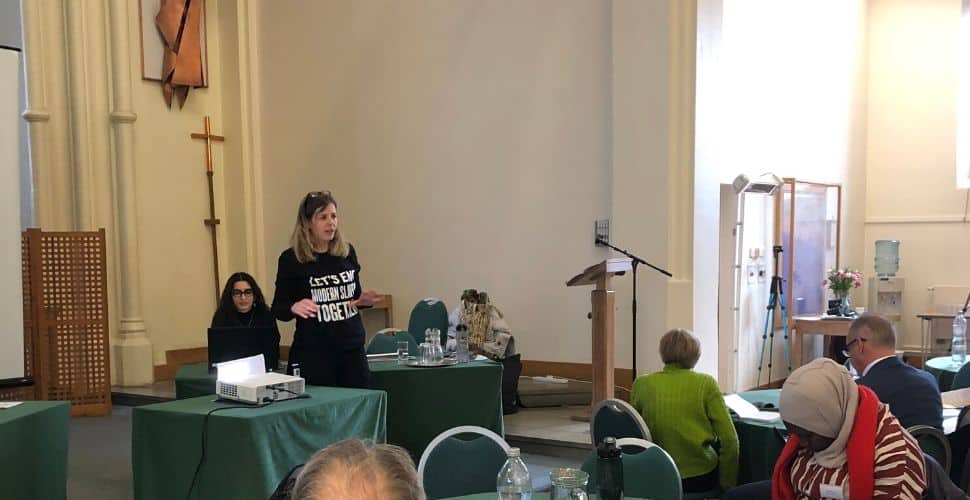In January the Freedom United team ran its first My Story, My Dignity workshop at the Faith and Anti-trafficking conference organized by the Universities of Sheffield and Leeds.
Led by our team members, Joanna Ewart-James and Miriam Karmali, and collaborating photographer Jeremy Abrahams, the workshop focused on giving participants practical skills to represent modern slavery with accuracy, respect and dignity.
My Story, My Dignity was the first campaign launched under Freedom United. It began by calling on large media houses to show the importance of treating modern slavery survivors’ stories with dignity, by reviewing their style guides and ensuring they are aligned with guidance developed by survivors to set a standard for others to follow.
Since then, the campaign has developed to urge individuals, companies, and organizations in the anti-slavery movement to commit to following this same standard.
While raising awareness of the issues and the prevalence of modern slavery is essential, the sensationalized images and language typically used to do so do not reflect the reality of modern slavery and serve to perpetuate harmful narratives.
Sensationalist images and language can unintentionally create or reinforce stereotypes or negative prejudices, undermining efforts to end modern slavery through the failure to identify victims and making survivors’ ability to recover even more challenging.
At Friday’s workshop, our team began by taking participants through the four main tenets of My Story, My Dignity:
- Choose respectful images that are representative of the issue. Choose stock images carefully.
- Select text that accurately represents the story. Be careful to avoid sensationalist language.
- Respect survivors’ right to privacy and dignity.
- Obtain prior consent to using a personal story, be transparent and accurate about the process and how it will be used.
The workshop brought to a live audience the work Freedom United has been doing as part of My Story, My Dignity to support survivors and change the way we talk about modern slavery.
The skills spread by workshops like this are important whether communications work is formal – through an NGO, for example – or informal, such as on social media. Without a shift in popular messaging, progress on ending modern slavery will inevitably be held back.
Meanwhile, Freedom United’s My Story, My Dignity Pledge has been signed by 34 organizations and 18,287 individuals to date. By adhering to the pledge, these organizations and individuals have committed to ensuring accurate and respectful representations.
Together, we are building a movement that supports survivors and motivates action helping bring it to an end.
Want to learn more about My Story, My Dignity? Have a look at our internal guidelines approved by survivor-led organization Survivor Alliance.
We hope and encourage others to copy Freedom United’s guidelines, which we promote on our home page and in our emails. We hope that they inspire variations of these guidelines developed to fit the specific roles and responsibilities of different organizations.
Take action and sign the pledge yourself below.







-
Follow us on Facebook
5.6M
-
Follow us on Twitter
32K
-
Follow us on Instagram
8K
-
Subscribe to our Youtube
5.7K
Donate